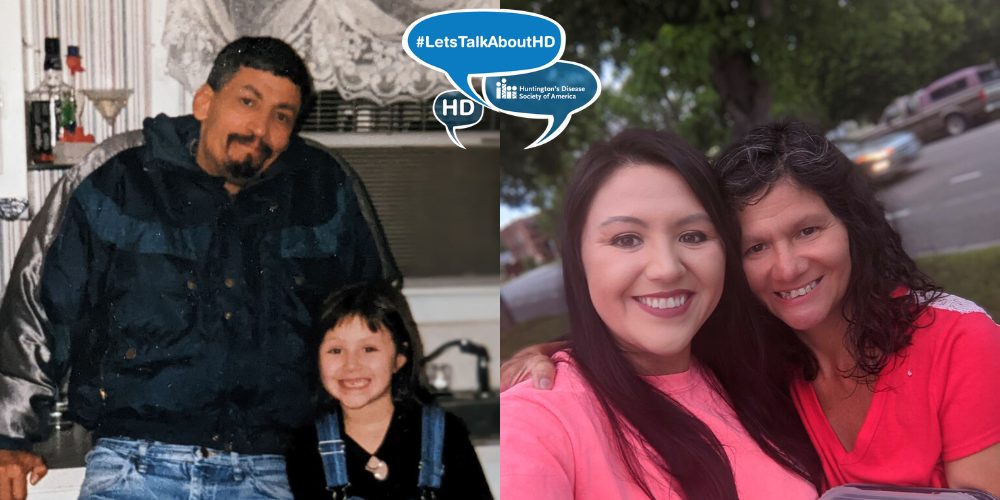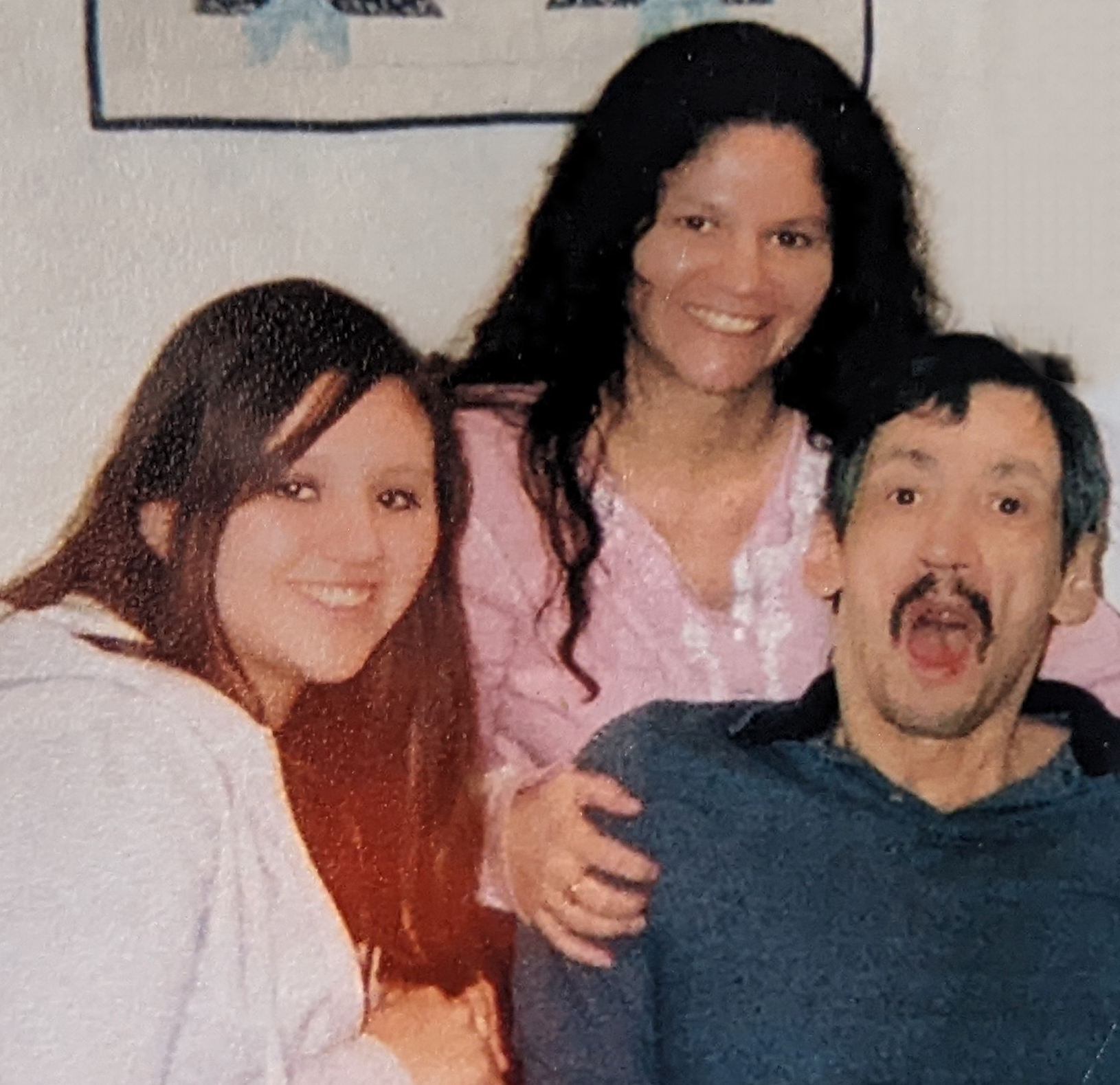
By Matthew Santamaria (msantamaria@hdsa.org)
At a young age, Montana resident Octavia Hatch was first introduced to Huntington’s disease (HD).
HD is a fatal genetic disorder that causes the progressive breakdown of nerve cells in the brain. It deteriorates a person’s physical and mental abilities during their prime working years and has no cure.
“My grandfather was diagnosed with HD,” said Octavia. “He thought he was still married and go see his ex-wife. He later received a restraining order that led him to be tested for HD.”
The symptoms of HD are described as having ALS, Parkinson’s and Alzheimer’s – simultaneously. Symptoms include personality changes, mood swings, depression, forgetfulness, impaired judgment, unsteady gait, involuntary movements, slurred speech, difficulty in swallowing, and significant weight loss.
“There was an incident where I got a bruise from his involuntary movements,” said Octavia. “The more you normalize HD and the less you will be afraid of HD.”

Her grandfather’s battle with HD would inspire her friends to pursue a career related to HD. He passed away from pneumonia.
However, the HD battle was not over as Octavia’s mother tested positive for HD. Every child of a parent with HD has a 50/50 chance of inheriting the faulty gene.
“I was 16-years-old when my mother started to develop HD symptoms,” Octavia explains. “Her symptoms were similar to my grandfather she also had erratic behavior and involuntary movements.”
Octavia and her family have helped take care of her mother. She is not currently on medication.
“My mother would leave at certain points during the day,” said Octavia. “She tried to go to Washington, DC, and would make crazy decisions on a whim. She would buy a bus ticket thinking she could make the journey on her own.”
As her symptoms would progress, she was often confused by others for being drunk and being assaulted by someone. There have been documented cases of people with HD having difficult interactions with law enforcement because their symptoms are misidentified, misunderstood, or mishandled. To read more, click here
As for Octavia, she decided to get tested during her senior year of high school.
The decision to get genetically tested is difficult to make. Each year, 5-10% are tested. It is never the right or wrong decision to be tested. There are people that see no benefit in knowing that they will develop the disease while others want to know in order to make informed choices about their future. It can take up to several weeks to receive your results from the genetic testing center.
Octavia tested positive for HD.
“I had a feeling that I had HD,” Octavia explains. “I wanted to know.”
She would become a patient care technician. In 2022, Octavia had her first child.

Octavia has a message for the HD Community:
“Be open-minded to everything. Embrace the struggle and anything can happen.”
###
Huntington’s disease (HD) is a fatal genetic disorder that causes the progressive breakdown of nerve cells in the brain. It deteriorates a person’s physical and mental abilities during their prime working years and has no cure. Every child of a parent with HD has a 50/50 chance of inheriting the faulty gene. Today, there are approximately 41,000 symptomatic Americans and more than 200,000 at-risk of inheriting the disease. The symptoms of HD are described as having ALS, Parkinson’s and Alzheimer’s – simultaneously.
The Huntington’s Disease Society of America is the premier nonprofit organization dedicated to improving the lives of everyone affected by HD. From community services and education to advocacy and research, HDSA is the world’s leader in providing help for today and hope for tomorrow for people with HD and their families.
HDSA was founded in 1967 by Marjorie Guthrie, the wife of legendary folk singer Woody Guthrie. Woody died from HD complications when he was only 55 years old, but the Guthrie family legacy lives on at HDSA to this day.
To learn more about Huntington’s disease and the work of the Huntington’s Disease Society of America, visit www.HDSA.org or call 1(800)345-HDSA.
This is a story featuring a personal experience with Huntington’s disease. If you would like to have your story told please contact Matthew Santamaria at msantamaria@hdsa.org
At a young age, Montana resident Octavia Hatch was first introduced to Huntington’s disease (HD).
HD is a fatal genetic disorder that causes the progressive breakdown of nerve cells in the brain. It deteriorates a person’s physical and mental abilities during their prime working years and has no cure.
“My grandfather was diagnosed with HD,” said Octavia. “He thought he was still married and go see his ex-wife. He later received a restraining order that led him to be tested for HD.”
The symptoms of HD are described as having ALS, Parkinson’s and Alzheimer’s – simultaneously. Symptoms include personality changes, mood swings, depression, forgetfulness, impaired judgment, unsteady gait, involuntary movements, slurred speech, difficulty in swallowing, and significant weight loss.
“There was an incident where I got a bruise from his involuntary movements,” said Octavia. “The more you normalize HD and the less you will be afraid of HD.”

Her grandfather’s battle with HD would inspire her friends to pursue a career related to HD. He passed away from pneumonia.
However, the HD battle was not over as Octavia’s mother tested positive for HD. Every child of a parent with HD has a 50/50 chance of inheriting the faulty gene.
“I was 16-years-old when my mother started to develop HD symptoms,” Octavia explains. “Her symptoms were similar to my grandfather she also had erratic behavior and involuntary movements.”
Octavia and her family have helped take care of her mother. She is not currently on medication.
“My mother would leave at certain points during the day,” said Octavia. “She tried to go to Washington, DC, and would make crazy decisions on a whim. She would buy a bus ticket thinking she could make the journey on her own.”
As her symptoms would progress, she was often confused by others for being drunk and being assaulted by someone. There have been documented cases of people with HD having difficult interactions with law enforcement because their symptoms are misidentified, misunderstood, or mishandled. To read more, click here
As for Octavia, she decided to get tested during her senior year of high school.
The decision to get genetically tested is difficult to make. Each year, 5-10% are tested. It is never the right or wrong decision to be tested. There are people that see no benefit in knowing that they will develop the disease while others want to know in order to make informed choices about their future. It can take up to several weeks to receive your results from the genetic testing center.
Octavia tested positive for HD.
“I had a feeling that I had HD,” Octavia explains. “I wanted to know.”
She would become a patient care technician. In 2022, Octavia had her first child.

Octavia has a message for the HD Community:
“Be open-minded to everything. Embrace the struggle and anything can happen.”
###
Huntington’s disease (HD) is a fatal genetic disorder that causes the progressive breakdown of nerve cells in the brain. It deteriorates a person’s physical and mental abilities during their prime working years and has no cure. Every child of a parent with HD has a 50/50 chance of inheriting the faulty gene. Today, there are approximately 41,000 symptomatic Americans and more than 200,000 at-risk of inheriting the disease. The symptoms of HD are described as having ALS, Parkinson’s and Alzheimer’s – simultaneously.
The Huntington’s Disease Society of America is the premier nonprofit organization dedicated to improving the lives of everyone affected by HD. From community services and education to advocacy and research, HDSA is the world’s leader in providing help for today and hope for tomorrow for people with HD and their families.
HDSA was founded in 1967 by Marjorie Guthrie, the wife of legendary folk singer Woody Guthrie. Woody died from HD complications when he was only 55 years old, but the Guthrie family legacy lives on at HDSA to this day.
To learn more about Huntington’s disease and the work of the Huntington’s Disease Society of America, visit www.HDSA.org or call 1(800)345-HDSA.
This is a story featuring a personal experience with Huntington’s disease. If you would like to have your story told please contact Matthew Santamaria at msantamaria@hdsa.org
